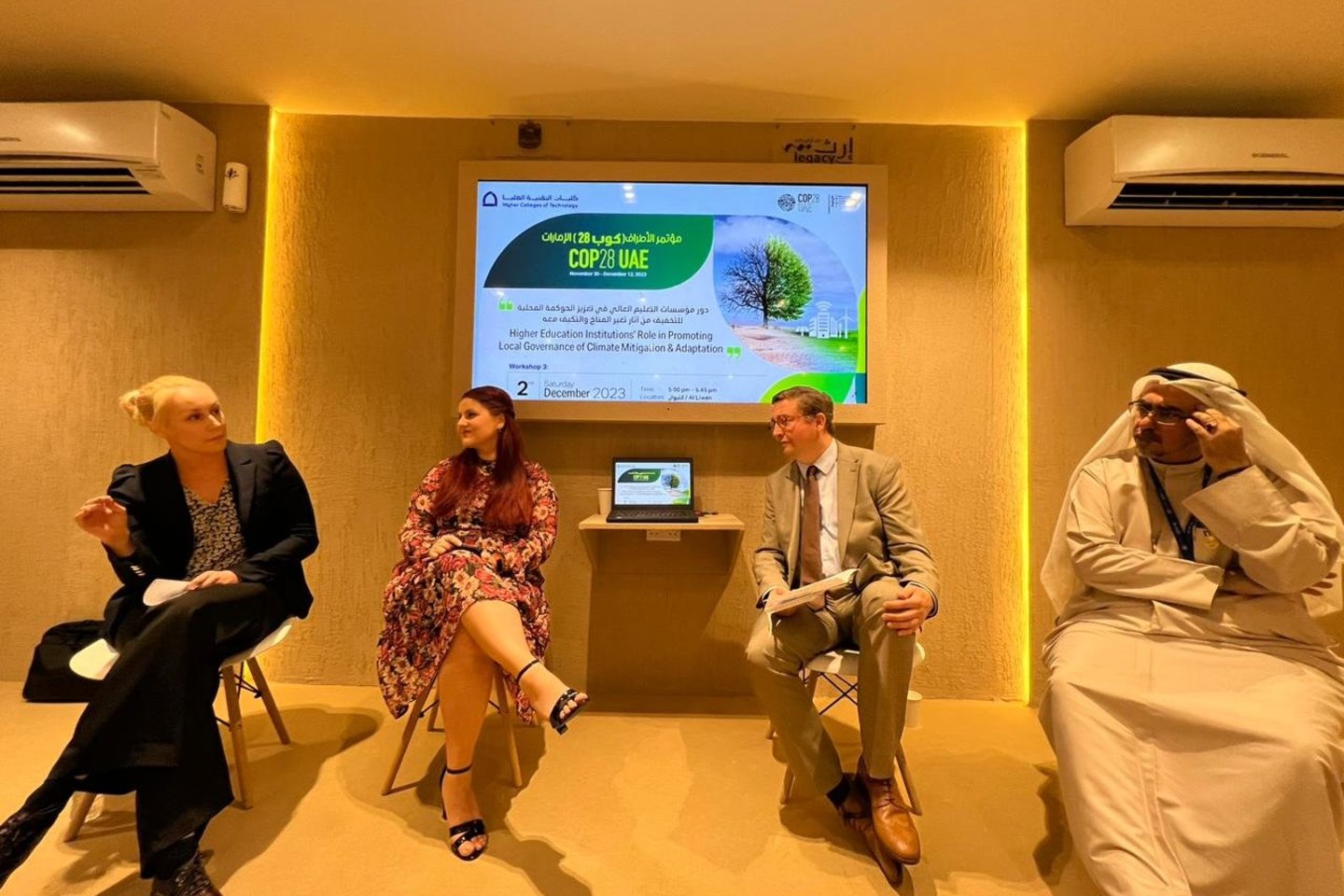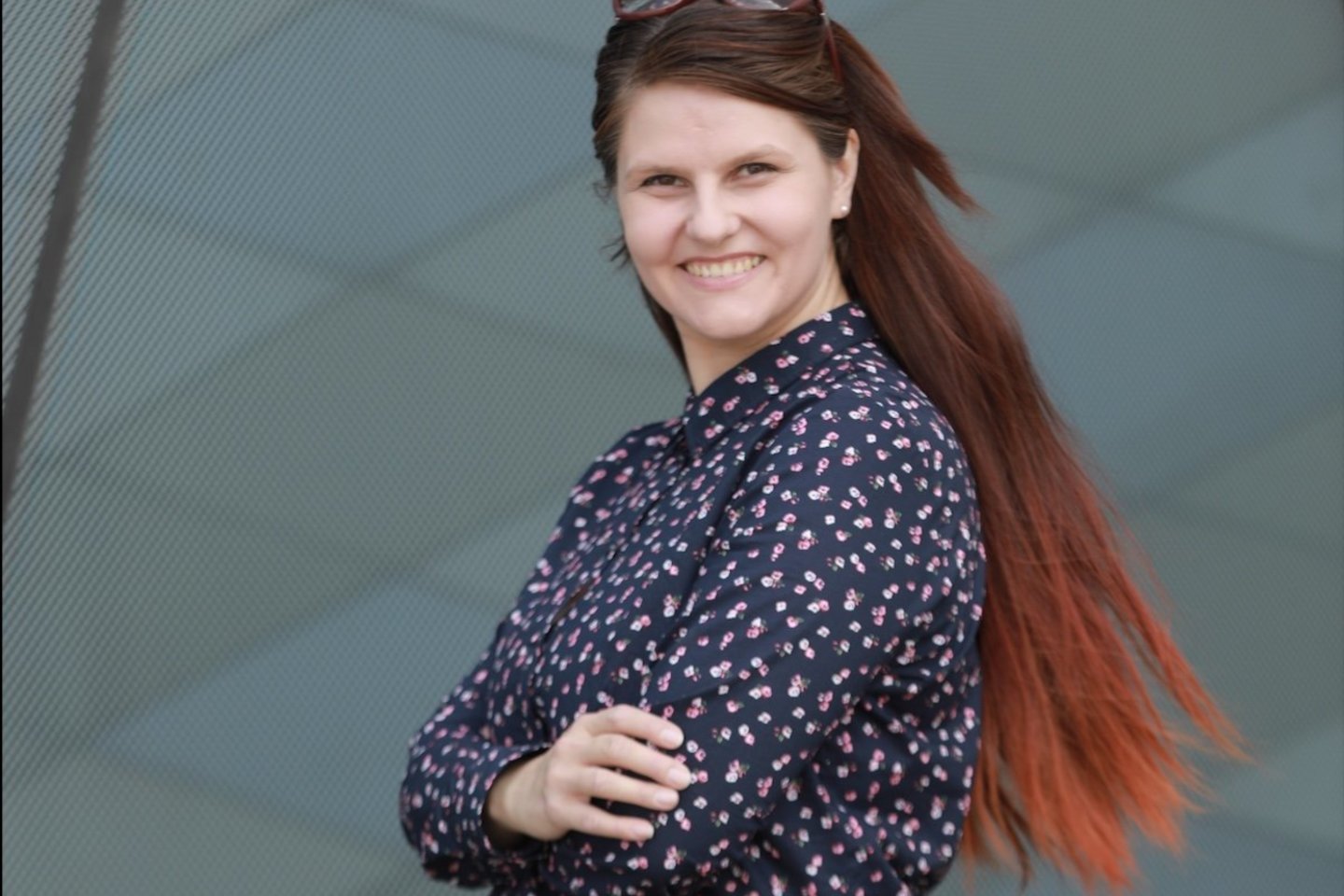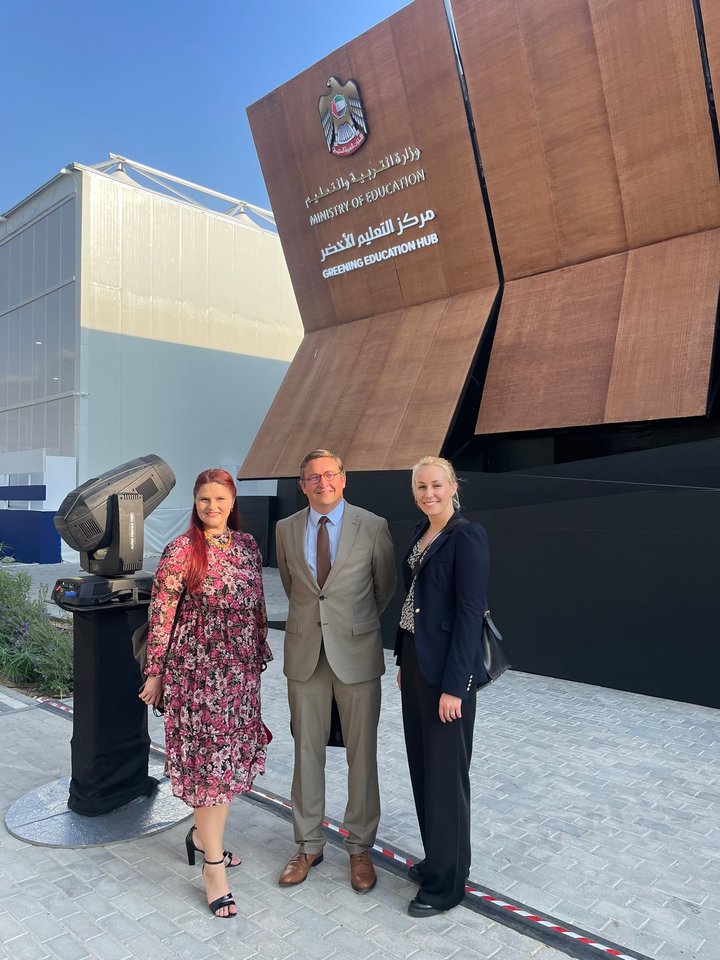„Although the EU plans to become climate-neutral by 2050, Vilnius city municipality has set a goal to achieve this goal within the next six years, i.e., by 2030. For these processes to be successful, it is essential that everyone contributes to solving environmental problems, including educational institutions. In particular, higher education institutions and universities preparing future experts and leaders who will make decisions that can change, as dramatic as it sounds, the fate of our planet.“ says D. Karlaitė.
The lecturer explains that the ways in which higher education institutions can contribute to solving environmental issues were discussed with other scientists participating in the COP28 conference during a debate organized by the European Association of Institutions in Higher Education (EURASHE).
„I was pleased to share the good practice of VIKO and other Lithuanian higher education institutions, that we have been focusing on developing future leaders' competencies in sustainability for more than 15 years. It is worth mentioning that not only study subjects such as the Sustainable Development module are studied by students, but also the projects of Lithuanian scientists and students are aimed at improving our environment,“ shares D. Karlaitė.
Generation Z – solvers of global challenges
Representatives of Generation Z are among the most concerned about environmental issues. Studies indicate that 8 out of 10 youngsters born between 1997 and 2012 care about the fate of the planet. Even 66% of Generation Z members are willing to pay more for sustainably produced products. 56% are convinced that businesses must take care of the environment.
„I can confirm these research findings from my day-to-day practice working with students. They show much concern about all social responsibility and environmental issues. These include gender equality, the inclusion of minorities, human rights, and climate change,“ the VIKO lecturer comments.
According to her, it is the responsibility of higher education institutions to tap into this potential of the younger generation: „They must encourage ambitious ideas and, if needed, provide the necessary tools. This could include new subjects, events where professionals in their field share their advice with students, foreign exchange programs, and participation in various projects. And sometimes, a simple word of encouragement from a lecturer is enough. And the importance of a close relationship should not be forgotten.“
2023 – the year of records
Despite the changing attitude towards the problems posed by climate change, the situation in the world is not improving as quickly as specialists would like.
„2023 is the year of records the world would have been better off not reaching. In Death Valley, California, the highest temperature ever recorded was set at 56.7 °C. Libya experienced the largest flood in its history, claiming the lives of over 6,000 people, and in Greece, a fire destroyed 77,000 hectares of land. And, as data from the EU's Copernicus Climate Change Service shows, these are just a small part of the consequences of climate change. Perhaps that's why this year's COP28 conference attracted the largest number of participants in its history, with nearly 100,000 people attending,“ states D. Karlaitė.
She is convinced that, in order to make a meaningful contribution towards solving environmental problems, it is necessary to speak up and share the solutions that have already been brought about.
„Initiatives such as donating food to those in need, the deposit-return system, shopping in second-hand stores, and waste sorting are already common and well-known practices in Lithuania. However, when these practices are shared with representatives from other countries, they are often surprised and ask to hear more. Therefore, I would encourage Lithuania to speak more boldly and actively about its implemented projects and to become an inspiration to others with its good example,“ says D. Karlaitė.



